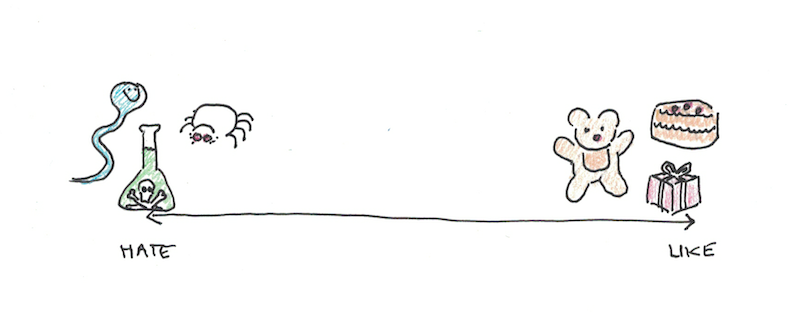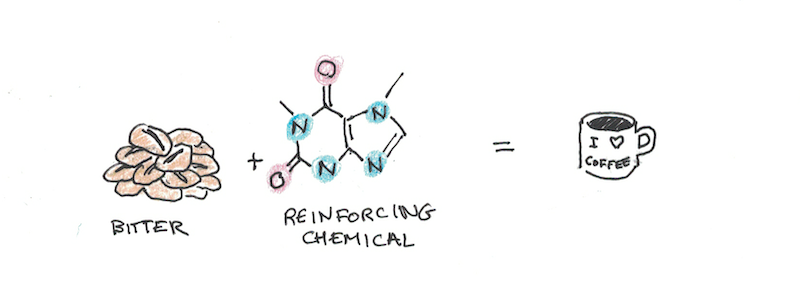Is it possible to change the things you like to do? The ambitions you have and the hobbies you’re interested in? Or are these things fixed and you just need to work around your likes and dislikes?
I think this is an important question.
If your likes are changeable, perhaps you can make the things you have to do more enjoyable, so you’ll be more likely to achieve other goals.
Imagine you’re an introvert. You hate social events. Yet, you need to network for your career and meet people to find a partner. Obviously, it would be easier for you if you could make yourself “like” socializing. Even if you could only dislike it a little less, that could still make the socializing you need to do far easier.
Similarly, if you “hate” math, but notice that a lot of the good careers are in STEM fields, can you train yourself to like it? Maybe the hatred you have for math is just an after-effect of bad early experiences, which you can overcome by having more success with it?
Two Views of Human Preferences
There’s two broad answers to this question. The first says our likes and preferences are fixed. The second says they’re mostly learned, and thus can be modified with experience.
Of course, there’s more scenarios than just these two, but I think these are useful ones to compare.
Why Might Your Likes and Dislikes Be Fixed?

Many of the things we like and dislike, may be instinctive. Human beings tend to dislike bitter foods, fear heights and darkness, and prefer cute, cuddly things to spiders. These are probably not the result of culture, but of innate preferences encoded within us.
Other things are also probably fixed, or at the very least, very difficult to change in terms of preferences. Personality attributes, such as introversion or appetite for risk, may be a lot harder to change than whether you like a particular food or hobby.
Another reason preferences might become fixed is simply because we tend to do things that reinforce our existing preferences.
If I’m bad at math in Grade Three, and develop a phobia of doing math, I’ll avoid practicing it, which results in further frustrations, which makes me less and less likely to get good at math. Without the confidence that comes from past successes, my dislike of math, which may have only been mildly pre-programmed, becomes almost insurmountable.
Like water carving a path through the mountainside, the flow of our lives sculpts patterns that can be very hard to overcome. Willpower may not be enough, if the path is too deeply trodden.
Why Might You Be Able to Change What You Like?
Despite this pessimism, there’s also a lot of evidence for a remarkable range of learned behaviors across human cultures.
Bitter foods, while an innate dislike, end up becoming a counter-example, when you consider coffee. The beverage is bitter, but because it is paired with caffeine, a mildly-addictive drug, the flavor can actually become so positively reinforced that people will drink it without the caffeine.

If something aversive gets consistently paired with something more rewarding, it may overcome it’s natural gravity and become enjoyable on its own. Similarly, we may be able to consciously change our likes or push through dislikes by pairing them with things we do enjoy or care about.
Change Your Likes, or Accept Your Constraints?
Beyond the factual matter of whether or not changing your likes is possible (or whether it’s possible with any particular set of likes and dislikes), there’s the question of whether it is worth doing.
At the very least, training yourself to like something you currently don’t, is going to be an uphill battle.
Either you’re hoping that you’ll overcome some kind of frustration barrier—pushing against something you dislike because of negative feedback until you get good enough at it that this feeling goes away.
Or you’re hoping that you’ll pair the thing you dislike with something you like even more. Maybe giving yourself a reward, or punishing yourself for failing to go through with it. This is also difficult, since if the pairing is voluntary, there’s always a chance you’ll give up before the association is complete.
For some things, this effort may not be worth it. If you dislike math, maybe it’s better to just avoid using math than push yourself to enjoy it. If you prefer to stay home than socialize, maybe you just accept this drag on your career and relationships.
However, for other things, I think the effort to self-modify your preferences may be worth it. Not only for achieving some kind of extrinsic benefit, say by overcoming a dislike to reach a particular goal, but also to expand the things you enjoy doing. Cultivating more likes, whether they’re food, hobbies, people or activities, makes life richer, so to the extent those things can be modified, it’s probably a net-benefit to do that.
What do you think? Have you trained yourself to enjoy something you didn’t before? Were you successful? Share your experiences in the comments.


 I'm a Wall Street Journal bestselling author, podcast host, computer programmer and an avid reader. Since 2006, I've published weekly essays on this website to help people like you learn and think better. My work has been featured in The New York Times, BBC, TEDx, Pocket, Business Insider and more. I don't promise I have all the answers, just a place to start.
I'm a Wall Street Journal bestselling author, podcast host, computer programmer and an avid reader. Since 2006, I've published weekly essays on this website to help people like you learn and think better. My work has been featured in The New York Times, BBC, TEDx, Pocket, Business Insider and more. I don't promise I have all the answers, just a place to start.